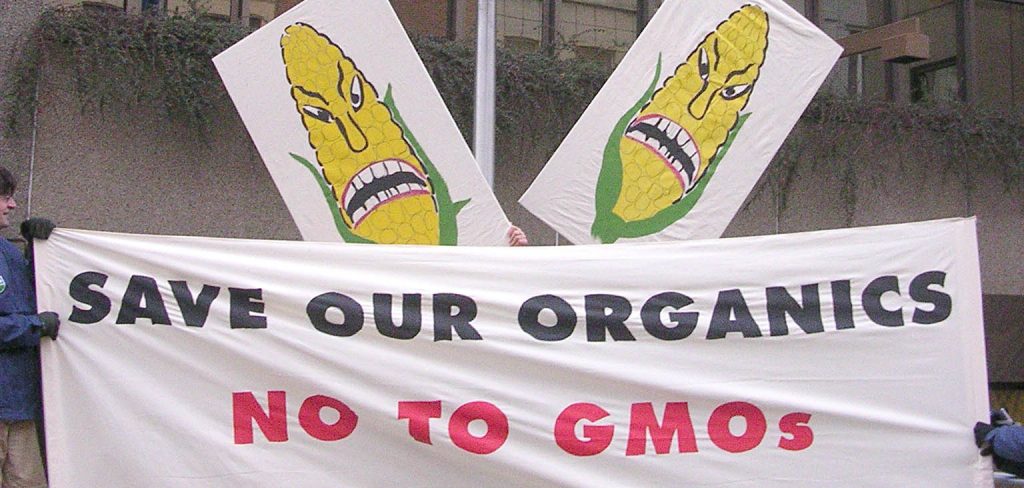Brussels, 6 September – Friends of the Earth is calling on the European Commission to halt proposals that would allow farmers to commercially grow up to 17 different types of genetically modified (GM) maize seeds in fields across the whole of Europe. The Commission, which is meeting in Brussels on Wednesday 8 September, also wants to legalise the widespread GM contamination of conventional crops.
Friends of the Earth, Europe’s largest grassroots environmental network, believes the proposals will threaten Europe’s food and farming and take away consumers right to avoid GM food.
At Wednesday’s meeting the outgoing European Commission is expected to decide whether to allow:
* The commercial growing of 17 different varieties of genetically modified (GM) maize The Commission proposes to add 17 varieties of a GM maize made by Monsanto to Europe’s Common Catalogue of seeds. This would make the seeds commercially available to farmers across the whole EU, the first time that a GM seed has been added to the common catalogue. Only one country – Denmark – has so far put in place “co-existence” measures aimed at preventing the uncontrolled spread of GMOs in the food chain and the environment. Without coexistence rules the widespread contamination of conventional crops is highly likely, posing a massive threat to Europe’s food, farming and environment.
* The contamination of conventional oilseed rape and maize seeds with GM varieties. The EC is also proposing that GM-contaminated seed will only have to be labelled if it exceeds a 0.3 per cent threshold. Such a move could see thousands of GM oilseed rape seeds being planted per hectare without the farmer knowing. Official wildlife experts in the UK [2] have said that these contamination levels “could result in adverse impacts on farmland biodiversity”.
Geert Ritsema, GMO Campaign Coordinator of Friends of the Earth Europe said: “These proposals by the European Commission are a recipe for disaster. Allowing the widespread growing of GM crops before countries have had the chance to put in measures to protect consumers and the environment is a reckless move that could lead to the widespread contamination of Europe’s food, farming and environment and take away consumers ability to avoid GM. These ill-judged plans must be abandoned.”
The Commission’s plan to allow GM-contaminated seed contradicts a resolution adopted by the European Parliament in December 2003. The Parliament called on the Commission and Member States “not to proceed with the approval of the release of any further genetically modified varieties of plants until such time as binding rules on coexistence, backed up by a system of liability based firmly on the ‘polluter pays’ principle, have been agreed and implemented.” [3]
If the Commission pushes ahead with its plans, Friends of the Earth will call on the EU Member States to impose national bans on the registered seeds. According to a leaked Communication from Commissioner David Byrne “any Member State may object to the marketing on their territory of any such GM variety if they consider there is a risk for human health, the environment or agronomic reasons.”[4]
Notes to editors
1. Monsanto’s MON810 maize, which is modified to produce a toxin to resist a type of insect, already has a EU wide licence through GM legislation. However, up to now it has not been made available to farmers through the EU common catalogue. Six of the varieties are already on the national seed lists in France (but not grown commercially as far as we are aware) and 11 are listed on the Spanish seed list.
2. The British Statutory Nature Conservation Agencies (consists of English Nature, Scottish Natural Heritage, and the Countryside Council for Wales). Their report – in response to a UK DEFRA consultation – “Commission proposals on thresholds for the adventitious presence of approved GMOs in seeds” is available from Friends of the Earth’s website.
3. European Parliament resolution on coexistence between genetically modified crops and conventional crops and conventional and organic crops (2003/2098 (INI), adopted 18 December 2003.
4. Communication from David Byrne to the Commission, available from Friends of the Earth







